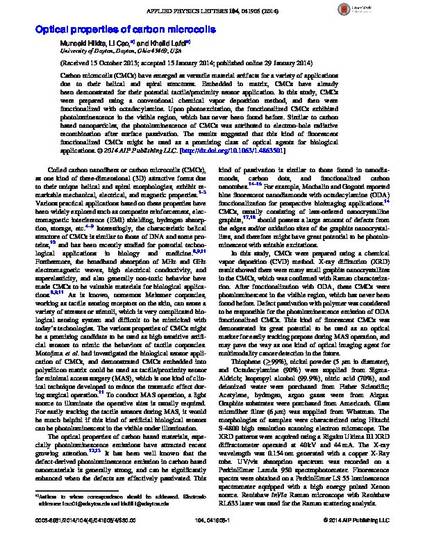
Carbon microcoils (CMCs) have emerged as versatile material artifacts for a variety of applications due to their helical and spiral structures. Embedded in matrix, CMCs have already been demonstrated for their potential tactile/proximity sensor application. In this study, CMCs were prepared using a conventional chemical vapor deposition method, and then were functionalized with octadecylamine.
Upon photoexcitation, the functionalized CMCs exhibited photoluminescence in the visible region, which has never been found before. Similar to carbon based nanoparticles, the photoluminescence of CMCs was attributed to electron-hole radiative recombination after surface passivation. The results suggested that this kind of fluorescent functionalized CMCs might be used as a promising class of optical agents for biological applications.
Available at: http://works.bepress.com/khalid_lafdi/14/

This version has been archived and made available for download in compliance with the publisher's policy on self-archiving. Permission documentation is on file.